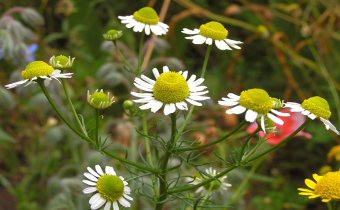 Kenya prides itself in having embraced organic farming, yet behind the glory is a rigorous conversion process from farming to registration but which has delivered 25 percent more yields and market price for the produce compared to conventional produce, with over 40 percent of farmers having converted since the venture began.
Kenya prides itself in having embraced organic farming, yet behind the glory is a rigorous conversion process from farming to registration but which has delivered 25 percent more yields and market price for the produce compared to conventional produce, with over 40 percent of farmers having converted since the venture began.
Organic produce are preferred more than their conventional ones by both local and international customers thanks to best practices involved in their production. Farmers report that the ‘conversions’, while time-consuming and demanding, are also cutting input costs, and permanently repositioning them into substantial profits and growth opportunities.
According to global studies, the organic industry, which has already grown extremely rapidly, is now moving into accelerated market growth. A 2010 US Organic Trade Association survey reported that the industry’s output grew from $1 billion in 1990 to $24.8 billion by 2009.
At the market end, the European organic food market expanded by some 12 percent between 2007 and 2009, but the United Nations Conference on Trade and Development (UNCTAD) projects that world wide demand for organic foods will have grown by a further 46 per cent by 2012, to a total market that it calculates at $67 billion.
In Kenya, the Kenya Organic Agriculture Network (KOAN) reported the 40 per cent growth in Kenya’s own market during 2008 in a report released in September 2009 that showed that Kenya had 27 organic certified enterprises, nine of which were run by small holder farmer groups, and another nine of which were exporters.
KOAN also estimates there are 3000 farmers selling organic produce locally, of which 1300 are represented by seven farmers associations, among them 500 Meru and Embu farmers now working with processor and exporter Meru Herbs Kenya
Together the Meru and Embu farmers have around 1000 acres registered as organic, on which they are growing mangoes, papaws and bananas for making jams, and Chamomile, Hibiscus and Lemon Grass for making teas.
The scheme has organised the farmers so there are three harvest seasons. From January to April farmers harvest the fruits. From April to June farmers harvest plants for extracting the teas. The third season, from September to year end, is a second round of harvesting the herbs for teas. “The tea herbs are ready for harvest in three months,” and are intercropped together, said Anastasia Kobia of Meru Herbs.
According to Su Kahumbu of organic farm Green Dreams, organic produce fetches over 25 per cent more than non-organic crops. “But it depends on what you produce at what time of the year,” said Su. There are higher value crops, such as asparagus, artichokes and apples, which are rare in Kenyan organic markets. However, before farmers are allowed into the Meru Herbs organic scheme they must be agronomically “converted”. The two-year “conversion” divorces farmers from using chemicals or fertilisers in their farms and is certified by KOAN and the international Soil Association.
While waiting for approval, farmers continue conventional farming but without chemicals or fertilizers, moving instead to gathering animal waste and mixing it with dry bushes to make ‘green’ compost and other substitutes for costlier synthetic fertilizers.
Across the two years, KOAN visits the farms regularly to check that the soil is chemical free. The surveying also checks if prospective organic farmers neighbour farmers who are using chemicals. The Soil Association officer visits every November of the year.
Based on the soil tests and assessments on the surrounding environment, the Soil Association can award the International Organic Certificate or withhold it. “KOAN’s role is to certify that the soil is clean,” said Kobia. For every organic consignment flown to Europe or Japan, tests are done in laboratories to ascertain if there are chemicals. There is also an organic certificate accompanying each consignment. In Germany, the tests are done from a sample picked while the rest of the consignment is at the airport before clearing is done.
Yearly, Meru Herbs exports quarterly to Europe, Italy being the first destination for products before dispersal to the rest of Europe. The exporter pays farmers on average a kilogram of Sh450 for Chamomile seeds, Sh20 for Hibiscus leaves, Sh25 for Hibiscus flowers, and Sh15 for Lemon Grass. Annually, it processes some 2000kg of Chamomile, 500kg of Hibiscus and 1000kg of Lemon Grass, processing the teas into 20gm teabags and the jams into plastic bottles of 500gms, all without additives.
Its sales growth has been steady, says Kobia, and it is open to more farmers in the region joining the project, so long as they agree to be converted. The farmers on the project also receive other support, such as an irrigation scheme for which they pay Sh2000 a year in order to counter the challenge of scarcity of rains.
















Comments powered by CComment